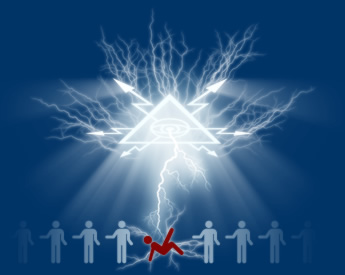We are developing the social individualist meta-context for the future. From the very serious to the extremely frivolous... lets see what is on the mind of the Samizdata people.
Samizdata, derived from Samizdat /n. - a system of clandestine publication of banned literature in the USSR [Russ.,= self-publishing house]
|
That’s it really. You probably know exactly what I am thinking. So get commenting.
My thoughts along these lines were provoked by a comment on this piece in The Sun by Iain Martin, who is prophesying Corbynite doom, in the event of a Corbynite victory.
The comment, in response to what Martin and the first few commenters all say, went thus:
But standards of living are falling and poverty is increasing while those that rule over us get richer and this is happening under a Tory government, so how is this any better than the nightmare scenario that you portray. Truth is that any system that leads to the politicians thinking that the rule over us rather than govern on our behalf is flawed.
Some systems, however, are more flawed than others.
Sliding down a hill is very troubling, but the idea that jumping off a cliff is the answer is crazy. Unless, and this is my real fear, enough British voters are now so angry at the world and the way it is treating them that they are willing totally to ruin their own lives in order to at least knock a little of the stuffing out of the bastards who are doing this to them. Wreck the country would it? Boo hoo. That’s not a bug, that’s a feature. The fucking country fucking deserves to be fucking wrecked. The vote as suicide bomb, you might say.
This, I believe, was the psychological fuel behind a significant chunk of the Brexit vote, and if anything could make me regret voting Brexit myself, it is the knowledge that if we get Brexit and then full-on, in-our-faces Corbynism, we really will be in a bad way, every bit as bad as the Remainers have been saying.
The result of the recent British general election was very bad. But it did, perhaps, have this mitigating feature, that it created a country full of people who are seriously scared of Corbynism (that being a link to another piece of writing very similar to Martin’s), before Corbynism has actually struck, and who are able and willing to get their act together to stop such a national catastrophe.
It may be that the electoral rise of Corbyn will, for him and for his cadre of demented followers, turn out to have been premature. From the point of view of the socialists-that-really-mean-it, the time for a country to be realising for the first time what a catastrophe socialism-that-really-means-it would be, needs to be after the socialists-that-really-mean-it have seized command, and when, from the point of view of all those of us who would prefer to live in a half decent country, it’s too late.
When dealing with complex political issues I often find it useful to ask myself what would happen in the absence of the state. This is not because I think that the glorious libertarian revolution is just around the corner but because such an exercise can at least give us some clues as to what the state should be doing in the here and now.
So, what do I mean by private roads?
Roads where the owners may decide who uses them, under what circumstances and have the means to enforce their decisions. The type of ownership could include purely commercial enterprises – out for a profit, individually-owned roads and – what I think will be the most common form – club-owned roads.
A lot would depend on people’s propensity to tolerate acts of terrorism. My guess is that this would be pretty low but I could be wrong. But that’s the great thing about the free market: it is a wonderful way of finding out what people really want. If the propensity is high then I would guess the outcome would be very similar to what we have now. Terrorism would simply be something that people would have to get used to. But let’s assume that the propensity is low. A commercial road owner would therefore have a very strong incentive to prevent terrorism.
Why?
Because, if a competitor was better at preventing terrorism then more people will want to use his roads.
But what of a road owned by a club?
This is an important example if I am right that most private roads would be in this form. The governance rules might be in the form of one frontage one vote. But it may be that the number of votes is proportional to the fees charged.
Now a road club will not have the same incentives as a commercial road – they would not exist to make money. But they would have incentives enough. The principal one would be that their members would want to preserve the value of their properties and one factor in that would be how likely it was that their properties became subject to terrorism.
Individual road owners, we can assume, would be in much the same position as clubs.
So, assuming there are strong incentives to prevent terrorism how would road owners go about it?
Obviously they would want to stop the terrorists. But they would also want to make it as easy as possible for non-terrorists to go about their business. And they would want to keep the costs down.
A key moment is what happens when someone enters the road – or road network – from one of the inevitably large number of frontages. You could have a guard on every frontage searching every person entering the road. However, this would be expensive. Not only that but it would be unlikely to be effective. Guards would get bored and become inattentive and would themselves become likely targets.
Another approach might be to deny access to anyone suspected of being an active terrorist. But this is fraught with difficulty. How would you know who is who?
Far simpler and more effective would be to ban anyone harbouring any terrorist sympathies whatsoever. Effective terrorist campaigns can always rely on a sea of sympathisers who are not themselves terrorists to aid and abet those who are. These sympathisers are usually easy to identify. Exceptions might be granted for children and members of the older generation. Or maybe there would be a system of vouching for people, guarantees of good behaviour or even the taking of hostages. The chances are that if private roads came about tomorrow terrorist sympathisers would wake up to find their properties surrounded by barbed wire.
The next issue would be those seeking entry from another road i.e. a road owned by another entity. What you would probably see is a system of guarantees. One road owner would guarantee the non-terrorist nature of their road users to other road owners. Obviously, there would be some fairly hefty compensation should one road owner’s users engage in acts of terrorism on another road owner’s territory. That would mean that road owners would be very careful who they let out.
There is a precedent for this – sort of. Those familiar with the movie The Day of the Jackal will recall that the idea that they might be letting a terrorist loose on foreign soil scared the living daylights out of the British government.
So, what would happen to the terrorist sympathisers?
It is difficult to see how terrorist sympathisers would be allowed to use non-terrorist-sympathiser roads. They would therefore only be allowed to use terrorist-sympathiser roads. As terrorist sympathisers tend to be poor and geographically concentrated, they would have an immediate problem over what to do for an income especially in the absence of a welfare state. Faced with poverty some would choose to leave for terrorist-sympathiser majority countries while others would choose to change their beliefs. Of course, there is the issue as to whether such conversions would be genuine. I have no answer to this.
But what if the terrorists engaged in acts of terrorism from their own roads?
They could for instance mortar bomb non-terrorist-sympathiser roads. My guess is that they would get mortar-bombed back. Just to greater effect.
Free-marketeers, even at the more purist end of the spectrum, usually accept imperfect approximations of their ideals. (I have met exceptions to this, but not many.) We are comfortable embracing second-best, even third-best and fourth-best solutions. Browse through the IEA’s publications section, and you will find IEA authors endorsing the Chilean pension system, the Swiss healthcare system, the Icelandic system of tradable fishing quotas, Sweden’s approach to labour migration, and many other such examples. None of these endorsements come without qualifications: the authors are saying “This is not real X. Real X has never been tried”. But unlike socialists, they can identify X-approximations that they consider quite good.
That is because free-marketeers generally believe in a positive dose-response relationship. A little bit of liberalisation does a little bit of good (think of the difference between Mao’s China and Deng Xiaoping’s China), quite a bit of liberalisation does quite a bit of good (think Chile before and after the Chicago Boys), and a lot of liberalisation does a lot of good (think Hong Kong and Singapore). That’s an oversimplification. There are reform bottlenecks: When an economy gets the basics wrong (the rule of law, independent courts, enforceable contracts and property rights etc), measures like trade liberalisations or privatisations count for little. Also, most free-marketeers accept some role for the state, so they do not strive for absolute purity.
– Kristian Niemietz
Socialism is tribal economics.
– Guy Herbert
(These four words suddenly clarified something I’ve been trying to explain for years with mixed success.)
I was speaking with a friend the other night, and I made the point that the meta-narrative of the 2016 election is learned helplessness as a political value. We’re no longer a country that believes in human agency, and as a formerly poor person, I find it incredibly insulting. To hear Trump or Clinton talk about the poor, one would draw the conclusion that they have no power to affect their own lives. Things have been done to them, from bad trade deals to Chinese labor competition, and they need help. And without that help, they’re doomed to lives of misery they didn’t choose.
– Rod Dreher . He is quoting JD Vance, author of Hillbilly Elegy: A Memoir of a Family and a Culture In Crisis
Many of you will have read Fraser Nelson‘s article in the Spectator already, so in a somewhat similar vein…
The refusal of Mr Cameron (and co) to talk in terms of limited government principles may have been a calculated decision or it may have been ignorance (it is hard to know), but with someone like Chancellor Hammond it is indeed very clearly ignorance. The Mansion House speech (not an off-the-cuff conversation when Mr Hammond was very tired or ill, but a formal speech – indeed the most formal speech of the year) showed a degree of basic ignorance, and an influence of socialist and interventionist philosophy, that was very grim. To Mr Hammond any improvement in the human condition must be the result of government spending or edicts (such as the Minimum Wage Law – now at such a level that employers are even starting using automation that works incredibly badly, rather than human employees) – private production and wealth (including his own?) is wicked and corrupt greed, to be condemned. The logical response for anyone who believed in the doctrines outlined in this speech (and other such speeches – or the Conservative Party Manifesto) would be to vote for the Labour Party – but the “Red Tories” do not understand this.
The philosophical bankruptcy of “interventionism” or “middle of the road thinking” and how it leads to socialism, was explained by Ludwig Von Mises almost a century ago, and (indeed) was exposed by Herbert Spencer in “The Man Versus The State” way back in 1883. But to the modern “educated” class the name of Mises is basically unknown and Herbert Spencer was just an evil “racist” (that Herbert Spencer was passionately ANTI slavery and war, and despised the idea of treating people differently on the basis of “race” is unknown to the “educated”). The ordinary public know nothing – but they also know they know nothing, the “educated” know all sorts of things that are just-not-true. In the time of Spencer or even Mises the government had not yet usurped all the basic functions of civil society and non state associations (such as churches and fraternities) were still strong. Now there are just “atomised” individuals and the state – today such things as churches are in terrible decline (even in the United States) and fraternities are mocked as things like Laurel and Hardy’s “The Sons of the Desert” – hardly anyone remembers that it used to be normal for ordinary people to belong to fraternities and friendly societies – now the state controls everything from the “cradle to the grave” (the totalitarian, total state, vision of Edward Bellamy’s “Looking Backward” 1887). Even the family itself has been undermined by the social revolution promoted by the Frankfurt School of Marxism (especially from the 1960s onwards – when resistance to the left, in the churches and so on, essentially collapsed).
→ Continue reading: The pointlessness of the Anglosphere Right
The sight of the profoundly illiberal Jeremy Corbyn preaching to the young-and-ignorant at a music festival moved Christopher Barrow to pen some remarks
Just in case anyone missed it, Jeremy Corbyn gave a speech at Glastonbury last Saturday. Tens of thousands of British young people, high on a false sense of community and overpriced hash, lapped up his vision of a wonderful future. Why shouldn’t they? Just about everyone is apparently due to benefit, all at the expense of an unspecified ‘elite’.
Of course it was a vague speech offering goodies to young people, old people, sick people, students, European residents and ‘refugees’. The plan would actually mean higher tax for all working people (who the Labour Party are supposed to prioritize) and a vast raising of our National Debt, as Obama did.
The really concerning matter however is the lack of logic and common sense that lies beneath current leftist and ‘liberal’ (in the US sense of the word) ideologies now prevalent in our societies. There are huge dangers that cannot be overstated, though they remain hidden in Corbyn’s recent advertisement for Leftism, especially to young people.
As I see it the main problem with leftist rhetoric is that it is solely focused upon “what it is not”. Granted it is anything but the stereotypical mindset of a bigoted white male; the wolf-whistling, England for the English brigade (who would actually be virtually impossible to find these days). Let’s call this “Retro Racism”.
The left have decided that as long as they vehemently oppose anything approaching this, then anything goes: they’ve achieved ideological enlightenment. The danger of this leftist viewpoint, the source of their strength and smugness, is that opposition to Retro Racism is actually all its got. It fails to understand that there are higher and more sophisticated points of view than just a strong distaste for Retro Racism. The are important paths of logic and sense that it doesn’t allow itself to explore.
This is precisely what Political Correctness is. It makes everyone hypersensitive about going anywhere even close to the vilified Retro Racism. This becomes the total scope of the political toolkit of active ‘liberal’ leftist. Facing the many and varied problems of the world principally tied to an aversion to anything not Politically Correct is irresponsible in the extreme. Political Correctness shuts down sophisticated discussion, at a time in the world when it is needed most. There are far more levels of sophistication beyond being “not racist”! Naivety isn’t the pinnacle of intelligence, nor is it of kindness.
Perhaps the most glaring example of this is the question of immigration. Corbyn glows with smugness and vanity as he proclaims “bridges not walls for refugees”. One question of actual reality (a place where leftists don’t like to venture) is at what point would you erect a wall instead of a bridge? A 100,000,000 population for Britain? 150,000,000? Maybe a population like this is the best thing for the country, but at least lets talk about it! It isn’t racist.
However aren’t leftists are a shining example of tolerance, love and unity? Well yes to everyone BUT white males who don’t cower to their ideology. If not, you’re fair game for abuse, violence and assassination if they had their way. The strong white male is anathema to the feminized West. Leftism appeals to repressed aggressive individuals and offers a safe environment to direct their anger. This is so dangerous for our future. Jungian Shadow anyone!?
It is not an exaggeration to state that we see shades of the violence of Communist Russia in the leftist pursuits of the modern Western world. Namely people believing they are correct to defend an ideology with violence when they are so convinced about it. This is a slippery slope indeed…
Of course we all want a world somewhat like the one described by Corbyn at Glastonbury. But the key point is to understand human nature. We have to be open and honest with ourselves as a starting point. Leftism is a dangerous meeting of repression with naivety. It we start out falsely misjudging ourselves, we are heading for deep trouble.
The problem is that understanding the problems of leftism is a sophisticated endeavour. You can’t communicate this to 50,000 young people in a field. There is always hope for the future. Lets just hope the youth discover truth over platitudes. Wisdom over naivety. And Love over vanity.
– Christopher Barrow
The replies to Natalie’s recent question, What were you doing a year ago… contain many a phrase like “I just couldn’t stop grinning” and “Ah, the happy Friday and Saturday”.
Reading them reminded me of a Christmas card I got from friends six months ago. Usually it contains a printed newsletter of what they and their children have been up to during the year. For the first time since we left university, there was no newsletter – just a short hand-written note saying that Brexit and Trump had so depressed them that they had decided to “cultiver nos jardin.”
Elections – and politics generally – seem to cause great inequality of happiness. As the result of each election or vote is announced, some are very elated and others are very depressed. If equality of happiness is the goal, should we diminish the importance of politics? After all, it surely can hardly be that they enjoy our misery – or we theirs – since such a view of human nature would seem to rule out the kind of grand government plan that risks the perverse incentives of its methods in order to advance its worthy goals. 🙂
At a time when standard arguments against socialism are not being quite as effective as we could wish here in the UK, I wonder how this one might fare?
ProTip to wannabe dictators: If you’re a tyrant who wants to centralize power over an industry, first frighten large businesses into your cartel protection racket. Then, eliminate local sovereignty over markets while imposing your own regulations and taxes. But call it “drawing into a common market” and “improving transparency to protect them.” Works every time. The final step is to prosecute non-compliance using men with guns.
– ‘Tyler Durden‘, not a source I would usually quote but this pretty much hits the nail on the head.
Smitebot seems to be yielding an unusual number of false positives lately, so if your innocuous comment got ‘smited’ and does not appear after half a day or so, feel free to send an email to reply-at-samizdata.net to alert me to the fact that your worthy remarks are languishing in smitebot’s cat box.




In the USA, the first amendment says that mere speech can never make a crime. Such a constitutional right has a penumbra, as the lawyers call it (many a complex case has gone to the supreme court).
Suppose a politically-incorrect remark makes it criminal for you to do what would be legal for you to do if you had not uttered it. Is it the remark that has been made criminal?
Throughout the ruling, Judge Watson concedes there’s nothing about the executive order that would be problematic if not for his interpretation of Trump’s statements made in the months and years prior to issuing it.
If it is illegal for Donald to do for four months what Barack legally did for six, solely because Obama’s speeches about immigration were always impeccably PC whereas Trump’s remarks on the 2016 campaign trail were not, are Donald’s first amendment rights violated? I’ve read plenty about a president’s constitutional right to control immigration under laws that congress had a constitutional right to enact, but what about his right to have uttered a politically incorrect opinion during the previous year? Can the same logic debar every candidate with a history of un-PC remarks from any executive position? Can an otherwise constitutional congressional law be nullified because people on the side that voted for it said un-PC things the day before – or the decade before?
If the ultimate ruling on this were that you guys across the pond could still speak your mind, but only at the cost of making acting on it illegal, then the penumbra of the first amendment would have grown short indeed – which is a surprising way to say it, since it would look to me like your free speech had become a mere shadow of itself.
[Added later] Commenter Chip expressed my post in a sentence:
Clearly, the only lawmakers who can restrict immigration are those who never said they would.
I’m glad all nine supreme court judges are not sure this is what the constitution actually says – and less glad that only three seem able to see at a glance that it is not.
Happy birthday Helen Szamuely. You got to see both of your life’s works achieved, proving that in your case, “a life in politics is NOT doomed to end in failure” . How typical that you’d contradict Enoch Powell in the process!
The USSR is gone, UK Independence Day was one year and two days ago. Brian Micklethwait once described the job of the Libertarian Alliance in the Cold War as “making it end in victory at least 15 seconds sooner” .
You saved us all a lot of time!
Thanks! I shall toast your life’s work on this beautiful Sunday. Wish you were here.
[Crossposted at Antoine Clarke’s not very active blog.]
|
Who Are We? The Samizdata people are a bunch of sinister and heavily armed globalist illuminati who seek to infect the entire world with the values of personal liberty and several property. Amongst our many crimes is a sense of humour and the intermittent use of British spelling.
We are also a varied group made up of social individualists, classical liberals, whigs, libertarians, extropians, futurists, ‘Porcupines’, Karl Popper fetishists, recovering neo-conservatives, crazed Ayn Rand worshipers, over-caffeinated Virginia Postrel devotees, witty Frédéric Bastiat wannabes, cypherpunks, minarchists, kritarchists and wild-eyed anarcho-capitalists from Britain, North America, Australia and Europe.
|







